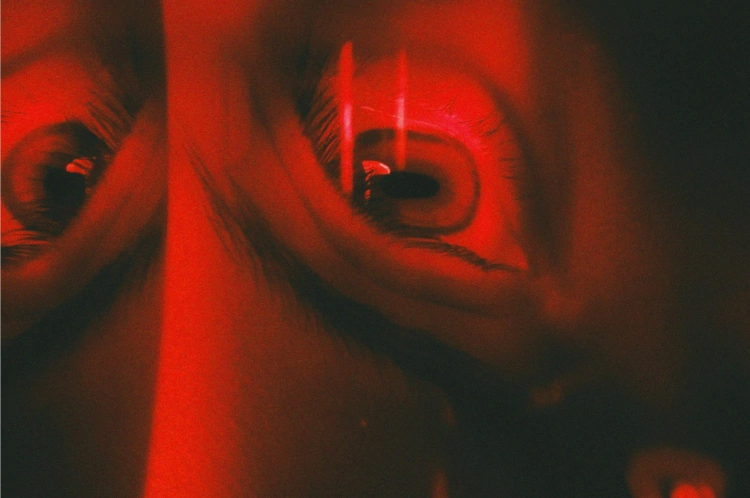Burning Eyes: What it means & why it happens
27 July 2021

Alexa, play ‘Burn’ by Usher…
According to the World Health Organisation, approximately 2.2 billion people around the globe suffer from a form of vision impairment. Taking good care of your eyes is therefore really important, so optimal eye health and good vision can be maintained as you continue to age.
One of the most common eye issues experienced during everyone’s lifetime is burning eyes. Burning eyes are not always a cause for concern, but in some cases, you may require specialist eye care to treat the issue.
What are burning eyes?
Experiencing ‘burning’ eyes refers to having eye irritation, which can cause that familiar burning sensation along with bloodshot eyes/redness and tears. Other symptoms that can accompany this irritation are watery/painful eyes, eye discharge, and itching.
There are many different reasons why you may experience burning eyes, such as the weather, allergies, or certain diseases. It may also be caused by genetics if you have dry eye syndrome (DES), which is a condition where the eyes do not make enough tears or the tears evaporate too quickly.
What is burning eyes a symptom of?
Some of the conditions that burning or irritated eyes can be a symptom of include:
- Eye strain: Eye strain is thought to be the most common cause of burning eyes, as it is something that is experienced by almost everyone nowadays. As we spend more of our time staring at brightly lit screens (particularly during the pandemic), we’re more likely to overexert our eyes which can lead to symptoms such as burning eyes amongst other symptoms.
- Injury: Receiving an injury such as blunt force trauma to the eye area can cause a burning sensation, along with itching and discharge. Eye injuries can also occur due to everyday factors such as dust, wind, heat, and sunlight, as well as putting in or taking out contact lenses.
Chemical exposure may also lead to eye injury if the eyes come into contact with shampoos, perfumes, chlorinated water, or cigarette smoke – not to mention the more harmful chemicals!
If you work around dangerous chemicals often, make sure to wear protective eye gear to avoid any serious eye injuries. This will help prevent your eyes from burning as a result.
- Allergies: Experiencing burning eyes is one of the most common parts of suffering from an allergy as it’s one of the main symptoms. An allergen such as pollen (which causes hay fever), pet hair, or dust can irritate the eyes as well as other parts of the body, such as the nose, throat, and skin.
Allergic conjunctivitis is the term for when an allergic reaction involves the eyes. To avoid experiencing burning eyes from allergic conjunctivitis, make sure you take antihistamines to reduce your chances of an allergic reaction. You can also avoid allergens such as dust and pollen by staying indoors, particularly on days when the pollen count is high.
- Eye infections and diseases: Irritated eyes can be a symptom of an eye infection or disease, as direct contact with a virus or bacteria may lead to eye discomfort or a burning sensation in the eyes.
One type of eye infection is Keratitis, which is an inflammation of the cornea – the clear tissue that covers the pupil and iris. Symptoms of Keratitis include redness, pain, excess tears, and discharge, and these symptoms tend to go hand in hand with burning eyes. To prevent eye infections that can cause a burning sensation, you must take good care of your eye health and seek medical help when needed.
How do you treat burning eyes?
As the majority of eye irritation happens when household products get into our eyes, you should always check the label before using any products to prevent any burning incidents from happening in the first place. This includes any product that is applied to or near the eyes, even if it seems harmless (such as sunscreen).
If burning eyes are caused by an allergic reaction, allergy medication such as antihistamines or eye drops will provide relief from any burning sensations. Using eye drops or a warm compress over your eyelids could also help relieve dry eyes during allergy season in spring and summer.
If you are suffering from burning eyes due to an underlying medical condition (such as conjunctivitis), you will need medical treatment to cure your symptoms, and seeking medical help will ensure your condition does not worsen any further.
What is a home remedy for eye irritation and burning?
Before you go to use any prescription eye drops or medications, try using these home remedies first – they can also treat burning eyes well with the added bonus of convenience!
For quick relief from stinging eyes in a more natural and convenient way, you can try:
- Rinsing your eyes with lukewarm water: Rinsing your eyes with water can remove any allergens or irritants that cause the burning sensation in your eyes, and this may help reduce any dryness or inflammation.
- Creating a warm compress: Soaking a cloth in warm water and then applying the warm compress over your eyes for a few minutes a day can also reduce burning.
- Staying hydrated: Drinking more water can increase eye moisture and reduce dry eyes – another cause of stinging and irritation. Another way of increasing moisture is by running a humidifier, as this boosts moisture in the air which prevents dry burning eyes.
- Reducing screen time: Due to the pandemic and online study/working from home becoming more common, the time we spend staring at screens every day has increased, and this could lead to digital eye strain. Reducing how long you spend looking at screens could prevent irritation and burning.
When should you see a doctor for burning eyes?
In most cases, home remedies (like the ones mentioned above) are enough to cure burning eyes. However, if your symptoms persist and worsen after some time has passed and home remedies don’t help, then it’s important to see an optometrist or ophthalmologist.
In particular, it’s especially important to see an eye doctor if you have burning eyes along with other symptoms, such as eye floaters, double vision, blurry vision, and eye discharge. This is because these symptoms combined could be a sign of a developing eye condition or an underlying health concern.
Making sure you take care of your eye health is incredibly important to prevent any damage or loss to your vision. If you feel concerned about your burning eyes or any other symptom you may have, please consult an eye doctor as soon as possible.
Back to Blog
